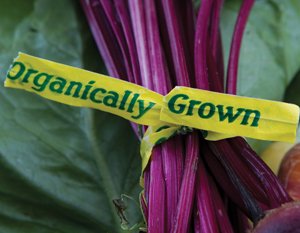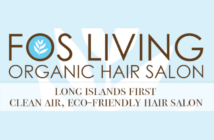“I will always remember one of my more comedic patients from years ago,” recalls Dr. David Pollack, of Pollack Wellness Institute, in Commack. “I asked her how she was doing with the food program, when she quickly responded, ‘I’m eating organic, like you advised.’ Something told me things were awry. With some prodding, she admitted that she thoroughly enjoyed the organic, and sometimes gluten-free, cookies and ice cream at Trader Joe’s and Whole Foods. Despite a 30- to 40-minute discussion on healthy eating, this patient tried to make the word ‘organic’ fit her desires.
“This story brings to mind the important issue of what constitutes ‘healthy’ and the question of when concepts and catchphrases like ‘organic’ or ‘gluten-free’ actually contribute to a problem,” continues Pollack. “What does ‘organic’ actually mean? It really depends on whom you ask. For food, often the USDA [United States Department of Agriculture] and very often the Oregon Tilth are deciding what constitutes ‘organic’ food. These definitions can get quite long-winded and may at times be a bit different from what you might expect. In general, we are hoping that our food is unadulterated; genetically unmodified; chemical-free; and in its purist, most original form.”
With regard to the situation of organic beef, Pollack says that the animals labeled “organic” are most often fed organic corn, soy and sometimes alfalfa as their main foods. Pollack maintains that what they would eat in the wild would be wild grasses, not corn or soy—neither of which are native to any original cow habitat. According to Pollack, research has shown that cows eating pasture-grown grasses have reduced inflammation, decreased rate of illness, are more lean, have omega fat profiles more similar to wild fish, have significantly reduced production of methane (considered the largest greenhouse gas source), and other improvements over conventionally fed animals. “While organic corn and soy diets are free from pesticides and genetic modification, which are very good things, it does not yet produce a healthy or health-promoting beef source This concept can be applied to all sources of food production.
“Ten or 15 years ago, this discussion barely existed in the minds of the public,” continues Pollack, “and at least we have access to widespread organic foods and better quality products, and that is a great thing. Even 8 years ago, I had to teach virtually all of my new patients about healthy eating. Now, many eat even cleaner and more organic than myself upon our first consultation, and I am so glad for that. On another note, it does make clear a problem I have thought for years and is now being proven by our mass food revolution. Many clients come to me thinking just changing their diet will solve all their health problems, while others are upset that despite all their hard-fought changes their symptoms still remain.
“Our health problems are not solely caused by poor-quality food or a ‘bad diet,’” adds Pollack. “Health issues are often the result of organs or glands not working appropriately. These symptoms are often exacerbated by poor food choices; however, unfortunately, simply changing our diet does not just fix everything. What’s important is that something can be done. Our health can always improve.”
Source: Dr. David Pollack. Location: Pollack Wellness Institute (formerly Creating Wellness Center) is located at 66 Commack Rd., Commack. For more information, call 631-462-0801 or visit CreatingWellnessLI.com. See ads on pages XX and XX.





